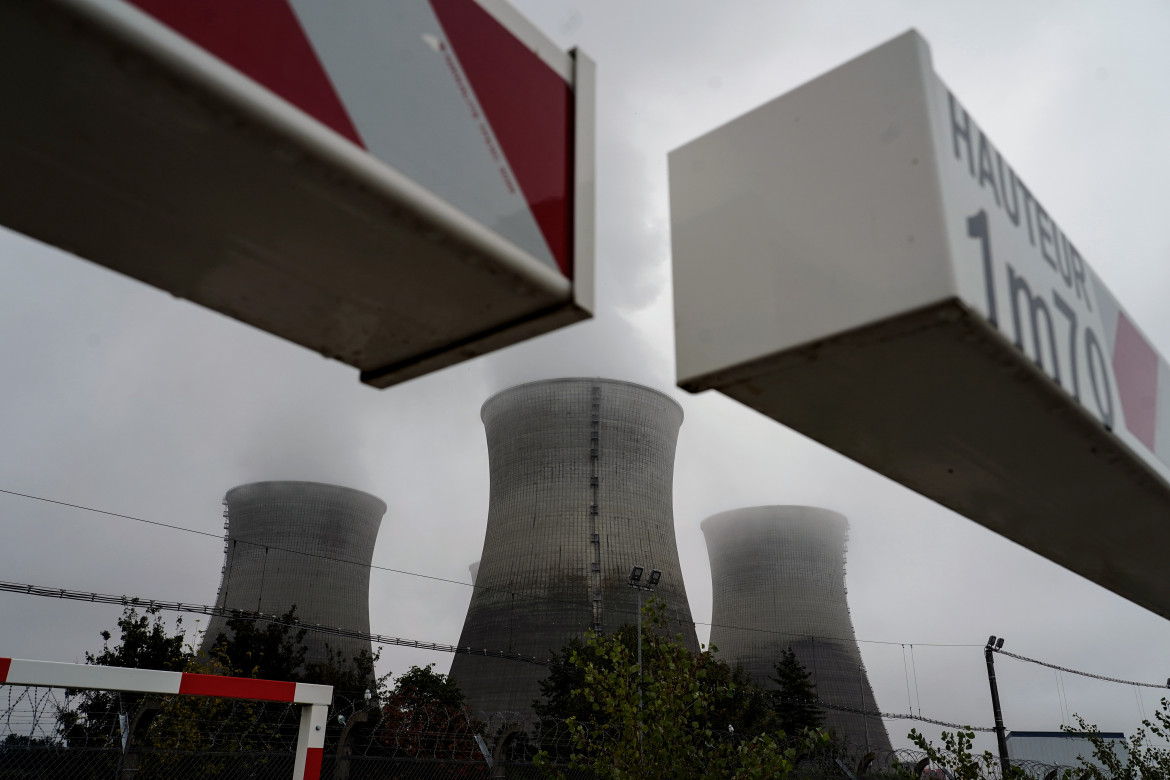Commentary
God, country, family – and fossil and atomic fuel
The electoral successes of nationalist right-wingers, particularly in Europe and the Americas, can be explained to a significant extent by their hostility toward an ecological transformation of the economy.

It’s time to update the classic conservative slogan: “God, Country and Family” should be joined by “Fossil Fuels and Nuclear Energy.”
This is not surprising. When talking about “tradition” nowadays, we’re not talking about our remote ancestral origins, but rather about the habits and ways of life we inherited from the Industrial Revolution. Our traditions are coal, oil, plastics, pesticides, intensive livestock farms, deforestation, large industrial concentrations, rampant land consumption, and so on and so forth. And these are the traditions that the conservatives want to conserve.
So there’s nothing surprising about the fact that right-wingers around the world, although they have very different histories and live in very different environments, are joined in opposition to the so-called ecological transition.
Their positions range from radical climate change denial to outrageously optimistic predictions about when it will actually happen, all the way to unbridled faith in technologies, such as greenhouse gas capture and storage, that would allow them to quietly continue with emissions. From Trump to Bolsonaro and Milei, from European right-wingers to Putin and, of course, the fossil-fuel-producing countries of the Middle East, the refrain is always the same. And it will continue to be so after the “historic” hopes on which the UN managed to agree in Dubai, where a future move away from oil and coal proved almost impossible to even put into words.
The electoral successes of nationalist right-wingers, particularly in Europe and the Americas, can be explained to a significant extent by their hostility toward an ecological transformation of the economy. There is a very strong inter-class glue that brings together the interests of big industry, extractive and consumeristic, with those of the ordinary poor citizen, who would otherwise have to change their car or boiler, and with labor and union concerns for preserving jobs, or farmers scared of having their yield-boosting chemicals taken away.
No matter how worrying the future looks, support has to be secured here and now. And the right-wingers have a winning model of nationalist cohesion played against globalist and “cosmopolitan” concern for the health of the planet at the expense of “nations.” It has also been able to take advantage of the backlash generated by ecological policies often hastily dumped on the shoulders of ordinary citizens, or by technological solutions and elitist lifestyles that are clearly out of reach for most.
Nowadays the anti-ecological banner is being flown by the right; but neither have European socialism and the left, fond of quantitative development and large industrial concentrations, been champions of ecological balance, which usually ends up added to their programs at the last minute, amid exceptions and expressions of caution.
But what is “conserved” with fossil fuels, and even more with nuclear power, is not just an enormous constellation of profits and rents, but a mighty economy of scale, a mechanism of capital concentration and a model of control. Renewable energy has long been ostracized, belittled and marginalized because it could represent a polycentric, locally organized, even self-managed energy system, not only independent of fuel suppliers but also outside the control and opaque scheming of big business. It’s enough to look at all the items on a utility bill to see the power of unilateral imposition and blackmail exercised over users by the large energy distribution circuits.
This centralistic model based on imposition works even better with nuclear energy. That’s why nuclear is basically the only alternative to fossil fuels that right-wingers are willing to consider. The drawbacks, accidents and high costs are well known. But even though there’s talk right now of small, local nuclear power plants (just how honestly and realistically remains unclear), nuclear still requires long lead times, large investments and iron-clad control. In 1977, Austrian essayist Robert Jungk published a book entitled The Atomic State, which met with great acclaim at the time.
He argued that the management of atomic energy would require an authoritarian state, if not outright dictatorship. This certainly turned out to be a stretch – although it seemed to be supported by the large and unhealthy plants at the time and state capitalism itself – but it is nonetheless certain that a system of nuclear power plants can only be managed and supervised by a centralized and unified controlling power. The technology’s contiguity with military employment and the security issues involved necessarily require that atomic power must be the purvey of a specialized agency kept under close watch by the state.
This combination of a concentration of power and national autonomy (while ignoring the fact that not everyone has uranium at their disposal) fits perfectly with the mythologies of the right, regardless of the high costs and long lead times of a nuclear reconversion that is being rhetorically passed off as the solution to every problem. Meanwhile, renewable energies, which receive plenty of praise, paeans and adulation, are being kept away from the center of the energy system – a delay with terrible consequences. They’re allowed in as an additional market, but the concentration of energy production, with its fuels, will continue to fight over every inch of ground for decades.
Originally published at https://ilmanifesto.it/dio-patria-e-famiglia-piu-fossile-e-atomo on 2023-12-14
